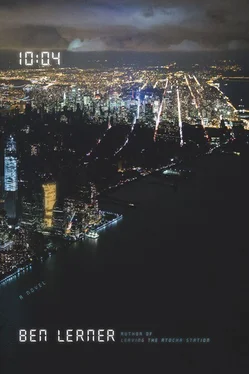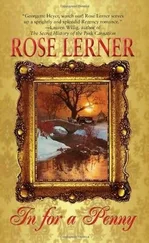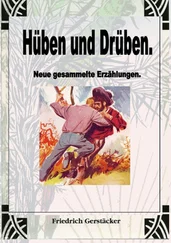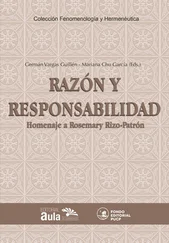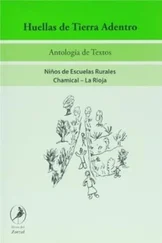“The thing is, almost nobody saw it live: 1986 was early in the history of cable news, and although CNN carried the launch live, not that many of us just happened to be watching CNN in the middle of a workday, a school day. All other major broadcast stations had cut away before the disaster. They all came back quickly with taped replays, of course. Because of the Teacher in Space Project, NASA had arranged a satellite broadcast of the mission into television sets in many schools — and that’s how I remember seeing it, as does my older brother. I remember tears in Mrs. Greiner’s eyes and the students’ initial incomprehension, some awkward laughter. But neither of us did see it: Randolph Elementary School in Topeka wasn’t part of that broadcast. So unless you were watching CNN or were in one of the special classrooms, you didn’t witness it in the present tense.
“What many of us did watch live was Ronald Reagan’s address to the country later that night. I knew everybody in my family hated Reagan, but I could tell that even my parents were moved by the speech. At the time I didn’t know that politicians’ speeches were written by other people, but I did know — because it was discussed in my favorite movie, Back to the Future , which had come out the previous year — that Reagan had been a Hollywood actor. Reagan’s speech was written by Peggy Noonan and is widely considered one of the greatest twentieth-century presidential addresses. Noonan would go on to write a bunch of memorable Republican catchphrases—‘read my lips: no new taxes’; ‘a thousand points of light’; ‘a kinder, gentler nation.’ (She would also, by the way, become a consultant for the television program The West Wing .) The speech was only four minutes long. And the ending — one of the most famous conclusions of any presidential speech — entered my body as much as my mind: We will never forget them, nor the last time we saw them, this morning, as they prepared for the journey and waved goodbye and ‘slipped the surly bonds of earth’ to ‘touch the face of God.’
“The prosody of that last part of the sentence, the way the iambs offered both a sense of climax and of closure, the way the alternating stresses lent the speech a sense of authority and dignity, of mourning and reassurance — I felt it in my chest; the sentence pulled me into the future. I had no idea what surly meant then, and it’s an awkward modifier in this phrase, since you usually see it in contexts like ‘a surly waiter,’ meaning uncivil; a ‘surly sky’ is threatening or ominous. It’s hard for me to apply it to a ‘bond,’ although I see how it does elegiac work by helping us think of the astronauts as having escaped a threat as opposed to having succumbed to one — they are in a better place now, etc. (Bede says: ‘By his verse the minds of many were often excited to despise the world.’) But the meaning of the words was nothing compared to that first experience of poetic measure — how I felt simultaneously comforted and stirred by the rhythm and knew that all across America those rhythms were working in millions of other bodies too. Let me allow the preposterousness of what I’m saying to sink in: I think I became a poet because of Ronald Reagan and Peggy Noonan. The way they used poetic language to integrate a terrible event and its image back into a framework of meaning, the way the transpersonality of prosody constituted a community: poets were the unacknowledged legislators of the world, it seemed to me.
“Had I seen a transcript of the speech, I would have seen that ‘slipped the surly bonds of earth’ and ‘touch the face of God’ were in quotation marks. They weren’t Reagan’s words, and they weren’t Noonan’s: they were taken from a poem by John Gillespie Magee entitled ‘High Flight.’ Magee — an American pilot in the Royal Canadian Air Force — died at nineteen in a midair collision during World War II and on his gravestone near where he died in Lincolnshire the first and last lines of ‘High Flight’ are engraved: ‘Oh! I have slipped the surly bonds of earth / Put out my hand and touched the Face of God.’ ‘High Flight’ is a very famous poem and it’s not so surprising Noonan had it on hand. It’s the official poem, whatever that means, of the Royal Canadian Air Force. It’s on a lot of stones in military cemeteries. When I learned these facts while writing a term paper in high school, I didn’t feel as though I’d been cheated: I loved the idea that a poem written by a young man weeks before his fiery death would be quoted by a speechwriter and read by a president and felt in the chests of a million American children in the wake of another aerial disaster. It showed poetry’s power to circulate among bodies and temporalities, to transcend the contingencies of its authorship.
“While preparing these remarks, I was reading up a little on Magee — by which I mean, why hide the fact, that I was reading his Wikipedia entry — when I noted a section called ‘Sources of Inspiration for High Flight .’ ‘Sources of Inspiration’ is an understatement, a euphemism; if Magee were a student of mine and showed me a poem with this number of ‘sources,’ I’d either say it was a work of collage or an act of plagiarism. The last line of ‘High Flight’—‘And touched the face of God’—also concludes a poem by a man named Cuthbert Hicks, a poem that was published three years before Magee’s in a book called Icarus: An Anthology of the Poetry of Flight . Hicks’s poem ends: ‘For I have danced the streets of heaven, / And touched the face of God.’ What’s more, Icarus contains a poem called ‘New World’ by one G.W.M. Dunn, which includes the (unfortunate) phrase ‘on laughter-silvered wings,’ which Magee stole for the second line of ‘High Flight.’ Moreover, the penultimate line of ‘High Flight’—‘The high, untrespassed sanctity of space’—sounds an awful lot like a line from a poem in Icarus by someone known by the initials C.A.F.B., ‘Dominion over Air,’ a poem that had previously been published in the RAF College Journal : ‘Across the unpierced sanctity of space.’ Reagan’s unattributed quotation provided by Noonan was taken from a poem that was cobbled together by a young poet out of an anthology of other young poets enthralled by the power of flight, which cost many of them their lives — unless someone made this all up on Wikipedia, which is possible; I didn’t have time to track down a copy of Icarus . I find this less scandalous than beautiful: a kind of palimpsestic plagiarism that moves through bodies and time, a collective song with no single origin, or whose origin has been erased — the way a star, from our earthly perspective, is often survived by its own light.
“I want to mention another way information circulated through the country in 1986 around the Challenger disaster, and I think those of you who are more or less my age will know what I’m talking about: jokes. My brother, who is three and a half years older than I, would tell me one after another as we walked to and from Randolph Elementary that winter: Did you know that Christa McAuliffe was blue-eyed? One blew left and one blew right; What were Christa McAuliffe’s last words to her husband? You feed the kids — I’ll feed the fish; What does NASA stand for? Need Another Seven Astronauts; How do they know what shampoo Christa McAuliffe used? They found her head and shoulders. And so on: the jokes seemed to come out of nowhere, or to come from everywhere at once; like cicadas emerging from underground, they were ubiquitous for a couple of months, then disappeared. Folklorists who study what they call ‘joke cycles’ track how — particularly in times of collective anxiety — certain humorous templates get recycled, often among children. When the IRA blew up a fishing boat with Admiral Mountbatten on it in 1979, the year of my birth, people told the same dandruff joke. When an actor named Vic Morrow died in a helicopter crash in 1982, there was the joke again — head and shoulders. (Procter & Gamble developed the shampoo in the 1950s.) The Challenger joke cycle, which seemed to exist without our parents knowing, was my first experience of a kind of sinister transpersonal syntax existent in the collective unconscious, a shadow language to Reagan’s official narrative processing of the national tragedy. The anonymous jokes we were told and retold were our way of dealing with the remainder of the trauma that the elegy cycle initiated by Reagan-Noonan-Magee-Hicks-Dunn-C.A.F.B. (and who knows who else) couldn’t fully integrate into our lives.
Читать дальше
